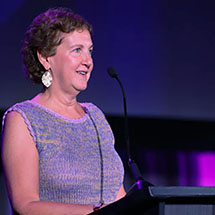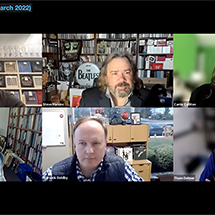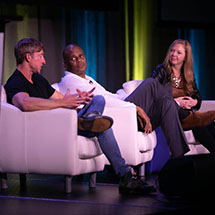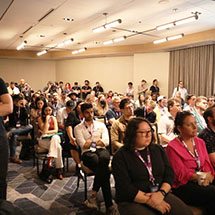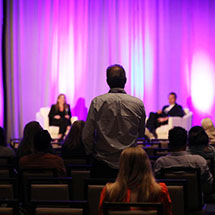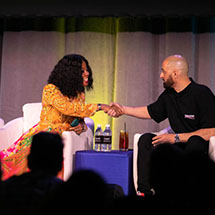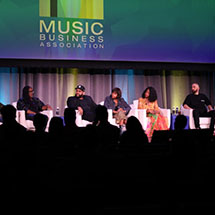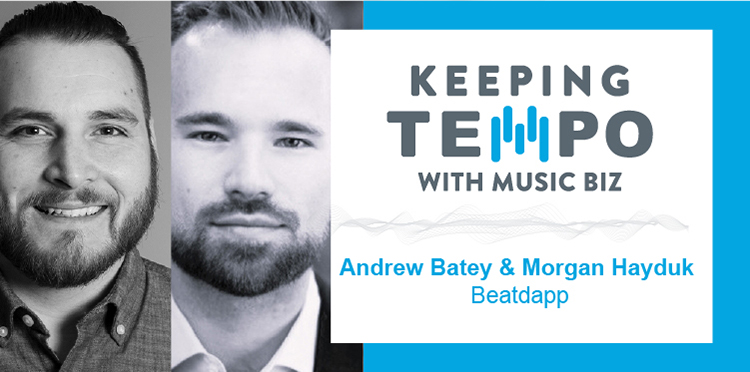
[Keeping Tempo With Music Biz] — Centralizing the Fight Against Music Streaming Fraud: An Interview with Beatdapp’s Andrew Batey & Morgan Hayduk

Music streaming has held a major place in our industry for a number of years, due to the promises of a strong value proposition to users, the democratization of promotion across major label & indie artists alike, and the ready availability of global music from artists who otherwise might not be heard. But like with every seemingly “good” innovation, there are always folks looking to exploit it for nefarious reasons. Streaming fraud is not a relatively new phenomenon, but solutions that prevent the rerouting of valuable revenue from artists and rightsholders to bad actors are finally gaining some traction. One such solution has been developed by Beatdapp; we spoke with company co-founders and co-CEOs, Andrew Batey & Morgan Hayduk about the prevalence of the issue and their approach to monitoring streaming fraud.
Music Biz: As a brief intro to the topic, would you give an overview on what different kinds of streaming fraud exist?
Morgan Hayduk: When we talk about streaming fraud, we’re describing the attempt to obtain royalty payments, change the perception of an artist or track, or both of those things. We think along the lines of four primary attack vectors: bots emulating human users, actual user accounts whose credentials have been illicitly obtained, human-staffed click farms, and content fraud. Fraudsters are getting very creative and there are now countless techniques within each attack category, which keeps us busy.
Music Biz: Can you briefly discuss how much and what type of information is needed to detect if a stream is fraudulent? Moreover, how simple or complex is it to analyze?
Andrew Batey: The answer here really depends on the sophistication of the fraudster, and it’s clear they are becoming more sophisticated. It’s not hard to spot a script controlling an account or group of accounts that are playing one song, for 31 seconds, 24 hours a day. On the other hand, an intelligently written script mirroring normal user listening patterns, burying a track among dozens or hundreds of other non-target songs, can be much more difficult to detect. To that end, we think having a view across all DSPs is a superpower because what may be near imperceptible on a single DSP may be much more obvious across multiple platforms.
Music Biz: Based on the user data available to DSPs, what realistically makes the most sense: each individual service creating their own tailored fraud solutions, or to craft a singular solution that services all platforms by detecting fraud and alerting rightsholders?
MH: If you believe, as we do, that stream manipulation is a persistent issue plaguing streaming platforms around the world, the thought that each one of those services is recreating roughly the same solutions is painfully redundant. We think the path forward is what we’re building at Beatdapp: an independent service that continually invests in R&D to create the industry standard in fraud detection capabilities. We see this as both the best outcome for the industry as a whole, and on a DSP-by-DSP basis.
Music Biz: Can you talk through the steps taken to monitor a DSP, detect an instance of streaming fraud, and alert the platform & relevant rightsholders?
AB: We take three types of data from DSPs: the raw streaming data and its corresponding metadata, anonymized user analytics (think, how a user navigates the platform, without us needing to know who that individual is), and their own historical analysis of suspicious activity. We also pull in three broad buckets of additional data: social, touring, and public holidays that are used as a sanity check for suspicious behavior. Platforms can receive reporting from us via a web-app, which also allows for users to investigate cases themselves, an API, or as a daily and weekly or bi-weekly emailed CSV.
Music Biz: How much of what Beatdapp does is manual, as compared to automated? And from a tech perspective, what barriers exist for full automation in the process of detecting and removing fraudulent music?
MH: Leaving aside the most easily detected cases, which still need to be removed from sales reports, charting, and the systems that feed into both algorithmic & human curated playlists, more sophisticated fraud is always a cat-and-mouse game. We’re developing learning systems and automating everything where we can have the highest confidence in the output.
Music Biz: In simplistic terms, online fraud is about as old as the first transactions that took place over the internet. How similar are other forms of online fraudulent activity to streaming fraud? Are there vertical industries you were able to look at for guidance when developing Beatdapp’s solution?
MH: I think in a way it’s sort of a badge of honor that streaming fraud is taking off. You only spend time and effort on defrauding things that have a high potential payoff. So in that sense, as an industry, we’ve entered a big league alongside digital advertising, e-commerce, banking, and more recently, online education. And to answer your question directly, yes, those are all verticals we look at for inspiration as many fraudsters transfer skills between sectors.
Music Biz: What is the process, if one exists, of ensuring that a particular DSP user will not commit another instance of streaming fraud once they are caught?
AB: If the account is clearly a bot, a DSP can ban the account. If it looks like it’s a stolen account, the user can be sent a password reset notification that alerts them to the concern that their credentials have leaked onto the wider web. If it’s unclear today, but looks suspicious, we can flag the account and monitor it over a longer period.
Music Biz: Looking forward, in a world where a technology like Beatdapp’s is used on a widespread basis, what ways do you see it evolving to incorporate new relevant tools?
MH: Our brilliant team is testing new technologies and optimizing models all the time. We have a world-class group laser focused on building tools that protect and preserve the integrity of our industry. Being on the leading edge of research is central to that mission. Hopefully it helps our clients sleep better at night to know that we’re obsessing over these details so that they can focus on all the other projects that will delight their customers.
You can read past “Keeping Tempo” articles via the portal linked here. And, stay tuned for more insightful discussions from our members and partners from across the industry!

